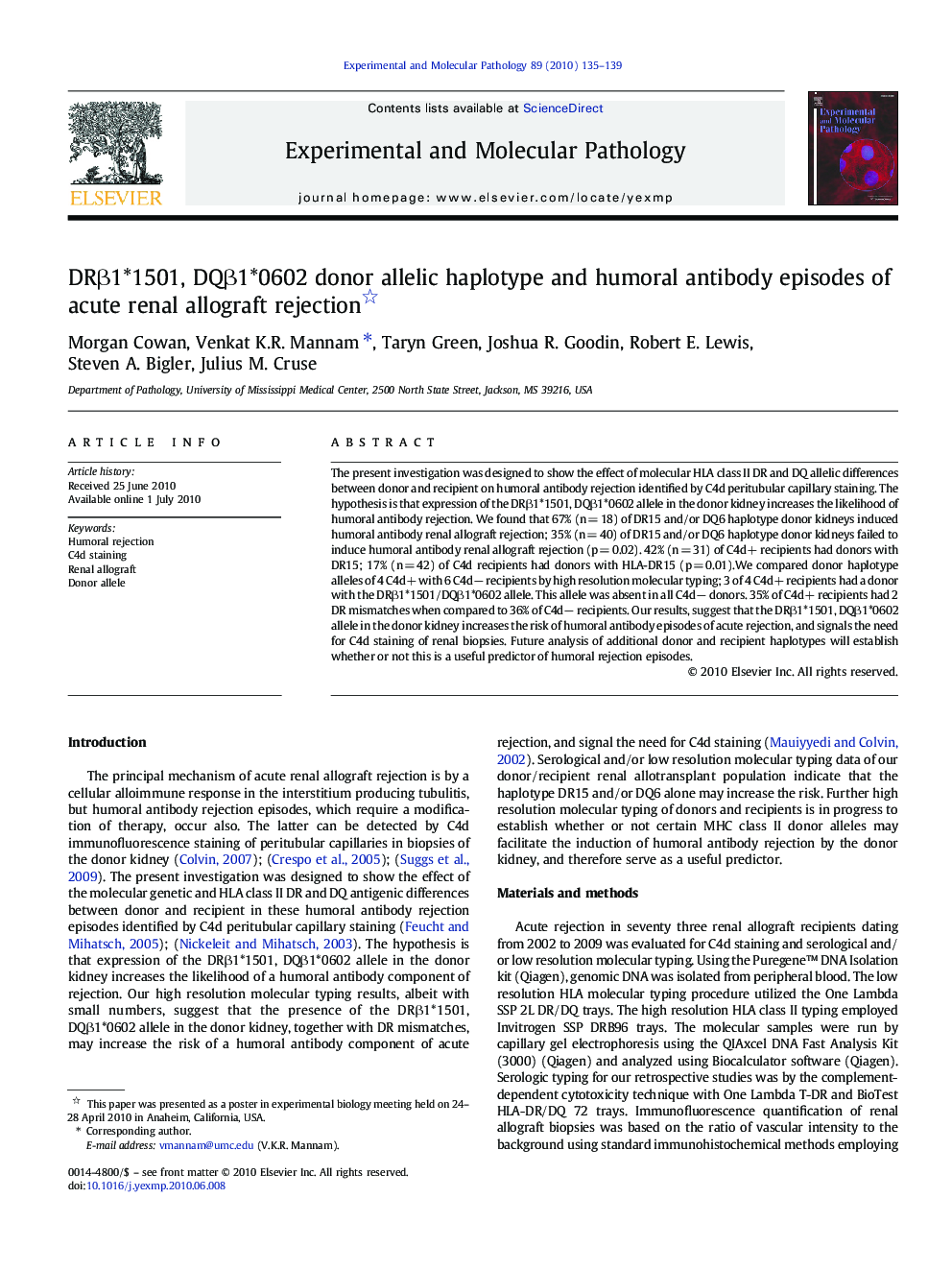| Article ID | Journal | Published Year | Pages | File Type |
|---|---|---|---|---|
| 2775655 | Experimental and Molecular Pathology | 2010 | 5 Pages |
The present investigation was designed to show the effect of molecular HLA class II DR and DQ allelic differences between donor and recipient on humoral antibody rejection identified by C4d peritubular capillary staining. The hypothesis is that expression of the DRβ1*1501, DQβ1*0602 allele in the donor kidney increases the likelihood of humoral antibody rejection. We found that 67% (n = 18) of DR15 and/or DQ6 haplotype donor kidneys induced humoral antibody renal allograft rejection; 35% (n = 40) of DR15 and/or DQ6 haplotype donor kidneys failed to induce humoral antibody renal allograft rejection (p = 0.02). 42% (n = 31) of C4d+ recipients had donors with DR15; 17% (n = 42) of C4d recipients had donors with HLA-DR15 (p = 0.01).We compared donor haplotype alleles of 4 C4d+ with 6 C4d− recipients by high resolution molecular typing; 3 of 4 C4d+ recipients had a donor with the DRβ1*1501/DQβ1*0602 allele. This allele was absent in all C4d− donors. 35% of C4d+ recipients had 2 DR mismatches when compared to 36% of C4d− recipients. Our results, suggest that the DRβ1*1501, DQβ1*0602 allele in the donor kidney increases the risk of humoral antibody episodes of acute rejection, and signals the need for C4d staining of renal biopsies. Future analysis of additional donor and recipient haplotypes will establish whether or not this is a useful predictor of humoral rejection episodes.
